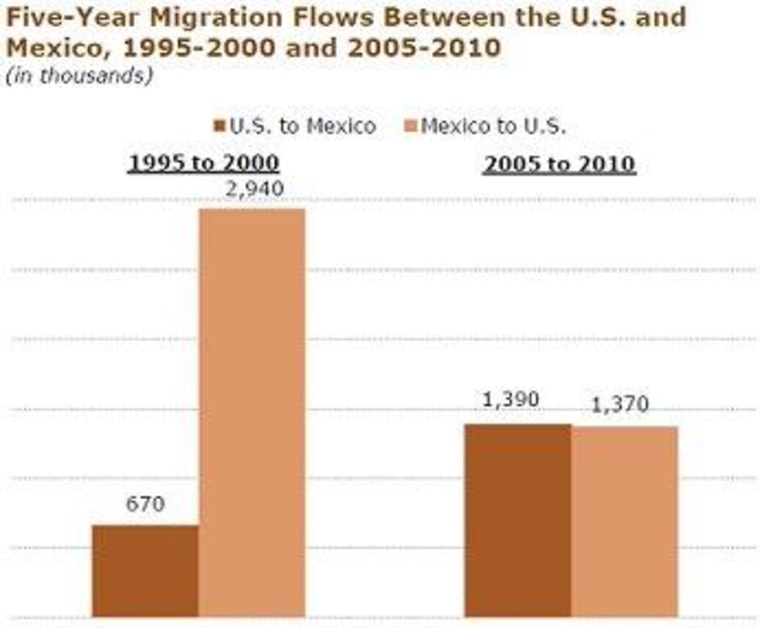Sen. John McCain (R-Ariz.), in his capacity as a leading surrogate for Mitt Romney, argued yesterday that the presumptive Republican nominee hasn't endorsed "self-deportation" as an immigration policy. Talking to reporters, McCain snapped, "Don't put words in his mouth."
The problem is that McCain doesn't know what he's talking about. Romney, just this year, explicitly endorsed "self-deportation." It's not a matter of opinion -- Romney said this on national television. It's on video.
McCain's comments, however, are part of a larger pattern: the truth about immigration policy and what Republicans say about immigration policy are usually quite different. The right claims, for example, that violence is rampant in U.S. border communities, though crime statistics show otherwise.
Conservatives also argue that the influx of immigrants from Mexico practically constitutes an invasion of the United States, which makes the latest research from the Pew Hispanic Center all the more interesting.
A four-decade tidal wave of Mexican immigration to the United States has receded, causing a historic shift in migration patterns as more Mexicans appear to be leaving the United States for Mexico than the other way around, according to a report from the Pew Hispanic Center.It looks to be the first reversal in the trend since the Depression, and experts say that a declining Mexican birthrate and other factors may make it permanent.
The Pew Hispanic Center's report attributed the shift to a wide variety of factors, "including the weakened U.S. job and housing construction markets, heightened border enforcement, a rise in deportations, the growing dangers associated with illegal border crossings, the long-term decline in Mexico's birth rates and broader economic conditions in Mexico."
Will this cause the right to update its talking points? Probably not, but it should.
On a related note, Supreme Court oral arguments will begin this morning in the case surrounding Arizona's anti-immigrant law. While not nearly as high profile as the recent hearings on health care, it's a case worth watching.
